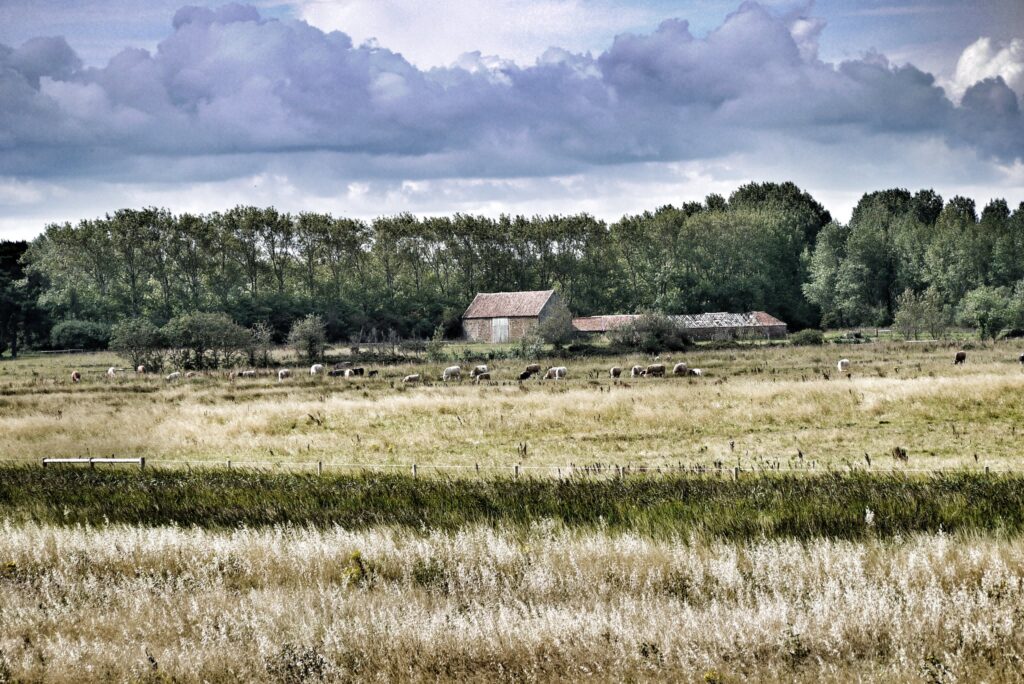Constable @ f5.6
North Norfolk a decade ago. I was trying to imagine how John Constable might have portrayed the East Anglian countryside if he’d been a photographer.
Snow
Yesterday afternoon, it began to snow, and for a time the world was briefly transformed. I opened the window to make a video for two members of our family who are sweltering in Sydney. The snow had deadened most sounds, except for the cries of delighted children of our neighbours who were improvising a snowman and giving him an outsized carrot for a nose.
And then, what came into my mind in the way unbidden thoughts do, was the closing passage of James Joyce’s wonderful short story, The Dead. Gabriel Conroy and his wife Gretta have just returned to their Dublin hotel after a convivial party in his aunts’ house. Gretta is strangely subdued. One of the songs sung at the party had deeply moved her. As they prepare for bed, Gretta tells her husband that the song reminded her of Michael Furey, a frail boy who had loved her as a teenager and had died because he had come out in the freezing rain on the night before she was due to return to Dublin to plead with her not to leave Galway. And he had died from exposure. She then falls on the bed and sobs herself to sleep, leaving Gabriel to his own mortified thoughts.
This is how the story ends:
John Huston made a beautiful film of the story, which I’m astonished (and delighted) to find is on YouTube. It was Huston’s last film. His son John wrote the screenplay, and his daughter Anjelica played Gretta. Huston directed it from a wheelchair, breathing with the aid of an oxygen tank, and died shortly after its completion.
Make an appointment to view. It’s worth it, especially if you like Joyce’s work.
Quote of the Day
“Aren’t women prudes if they don’t and prostitutes if they do?”
- Kate Millett, speaking at the Women’s Writers Conference, march 1975.
Musical alternative to the morning’s radio news
Loose Marbles | Burgundy Street Blues
Can facial recognition technology really reveal political orientation?
My Observer column this morning:
Three things about the research paper stopped me in my tracks. The first was the title: Facial recognition technology can expose political orientation from naturalistic facial images. The second was that the author was Michal Kosinski, someone who used to be at Cambridge University, is now at Stanford and whose work I’ve followed for years. And the third was that it was published in Scientific Reports, one of the journals published by the Nature group and definitely not an outlet for nonsense.
The paper reports a research project that suggests that facial recognition technology can accurately infer individuals’ political orientation in terms of whether they have liberal or conservative views…
Long Read of the Day
Inside the Brexit deal: the agreement and the aftermath
The inside story of how the Brexit ‘deal’ was done, told by four terrific Financial Times journalists — George Parker, Peter Foster, Sam Fleming and Jim Brunsden. It’s a scarifying story of arrogance, ineptitude and wilful blindness. None of which comes really as a surprise, but it’s fascinating to see how much damage a fanatical attachment to a single idea — ‘sovereignty’ — can do.
This blog is also available as a daily email. If you think this might suit you better, why not subscribe? One email a day, delivered to your inbox at 7am UK time. It’s free, and there’s a one-click unsubscribe if you decide that your inbox is full enough already!

